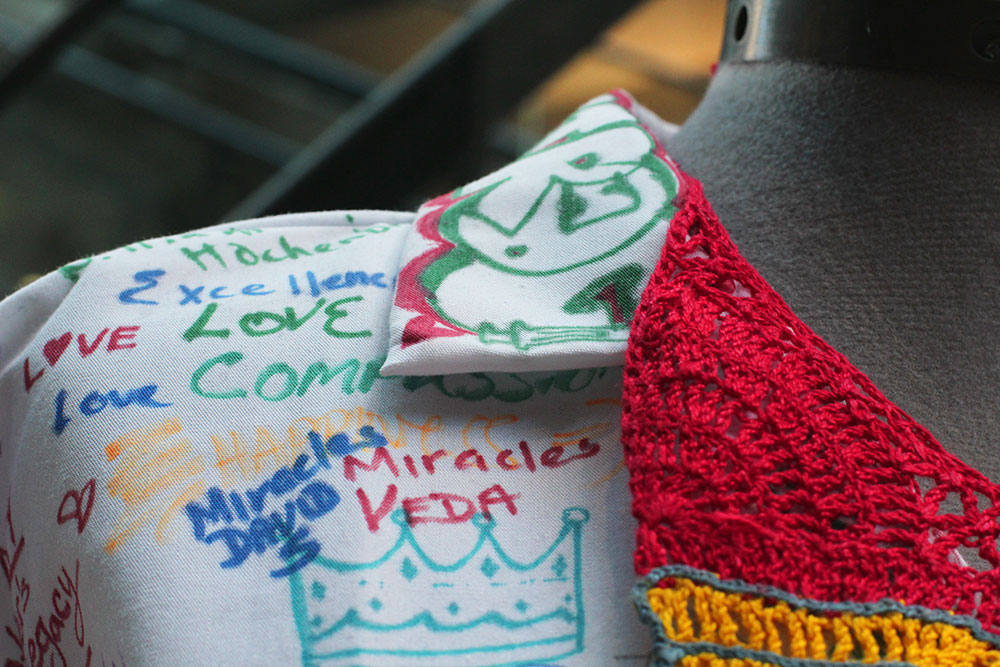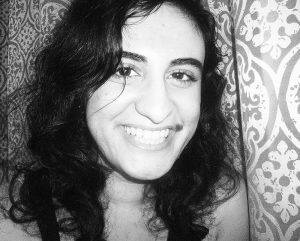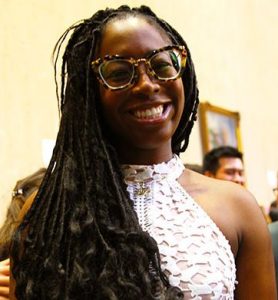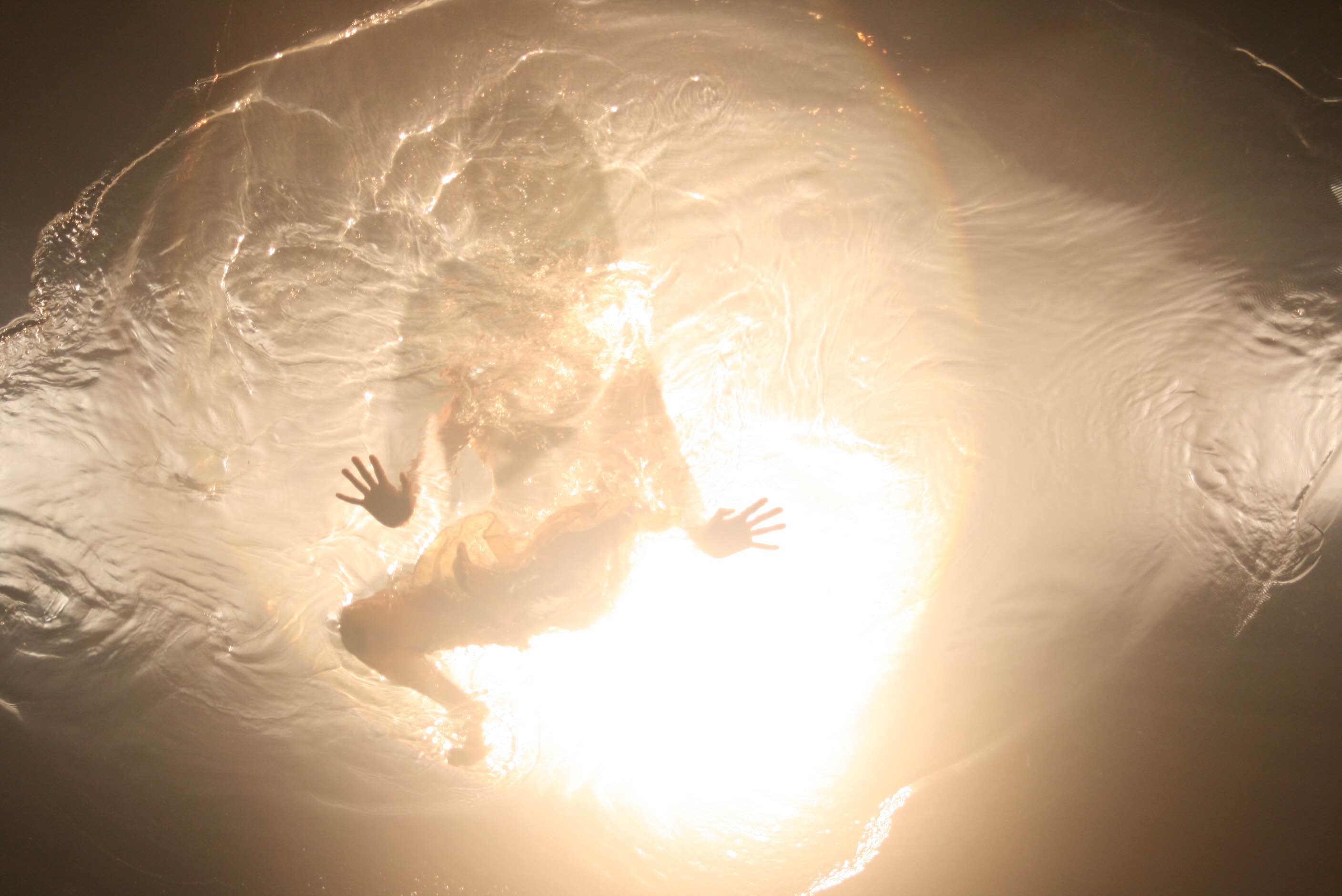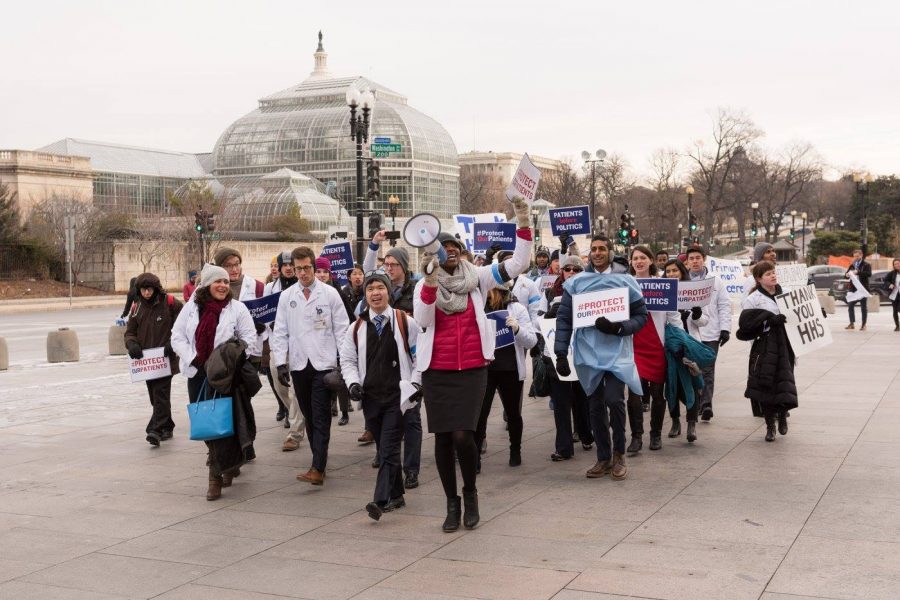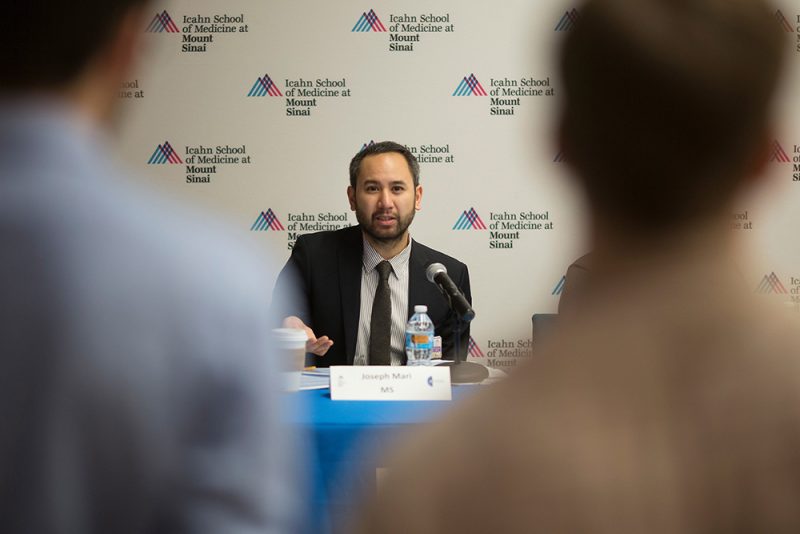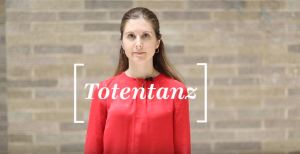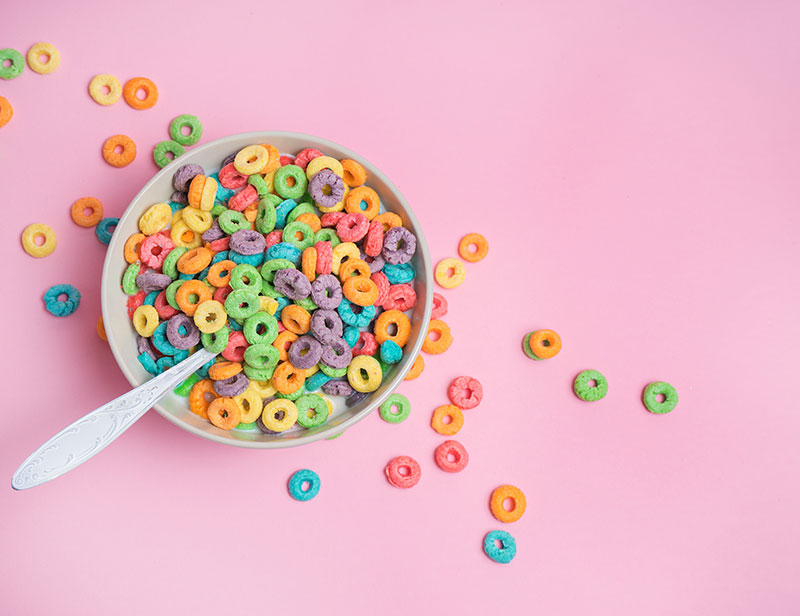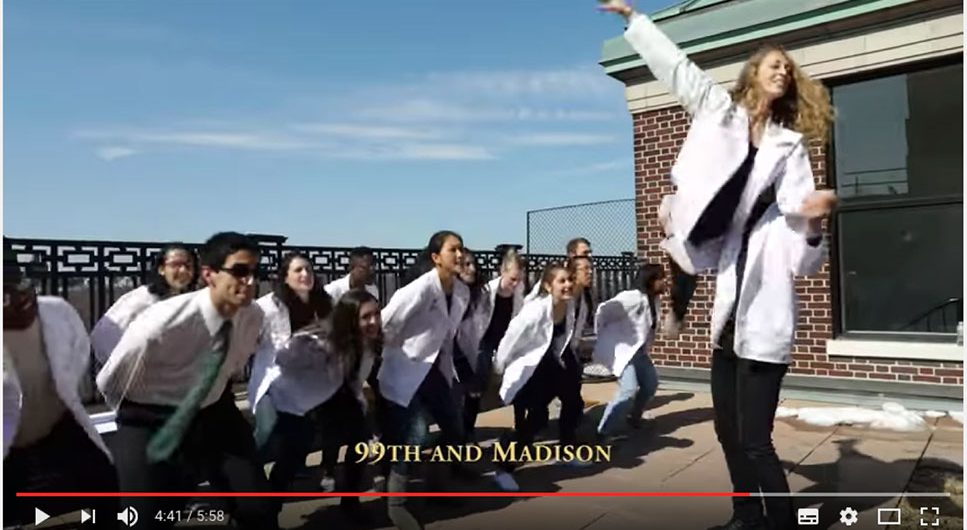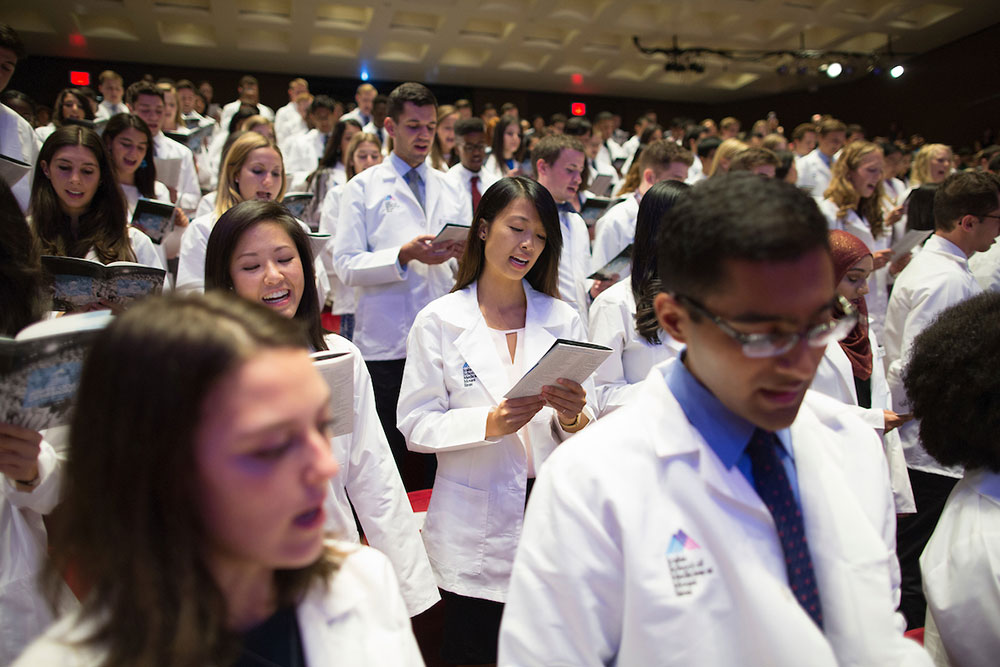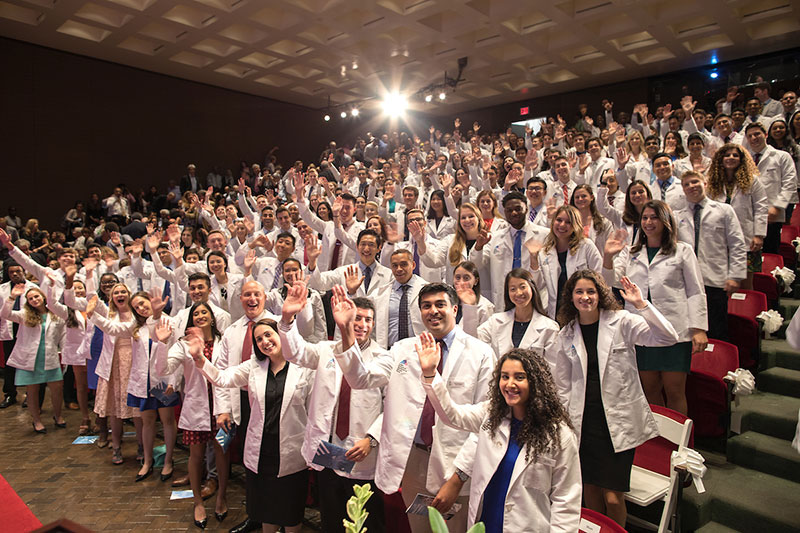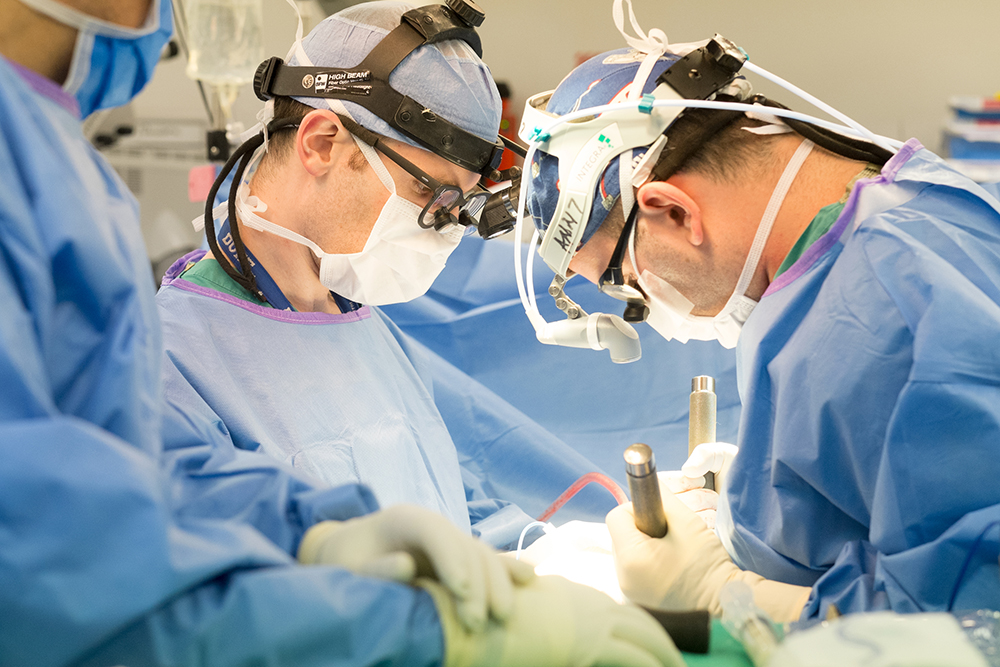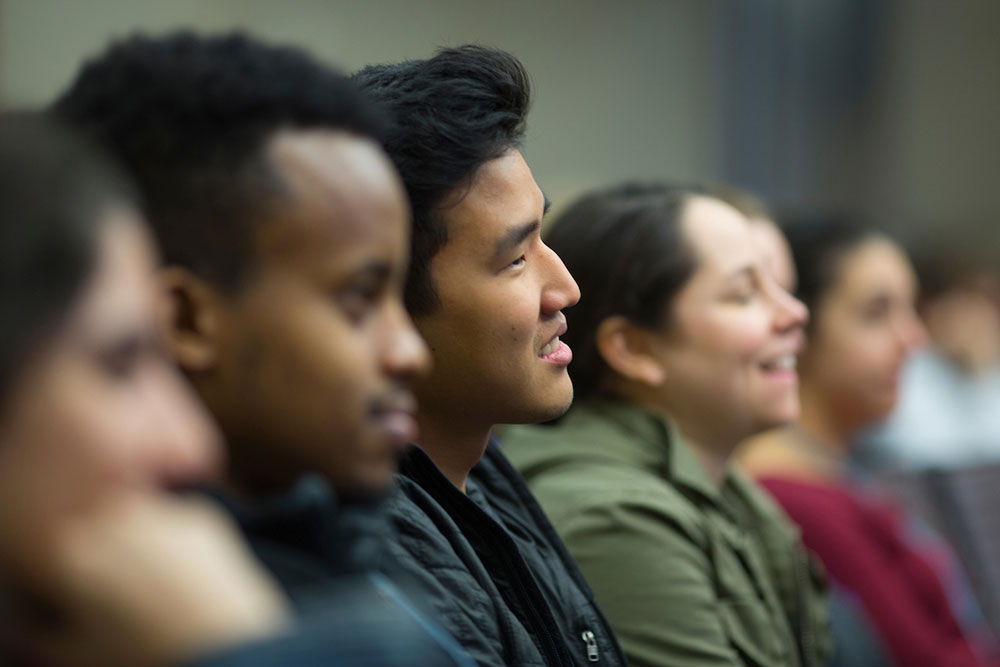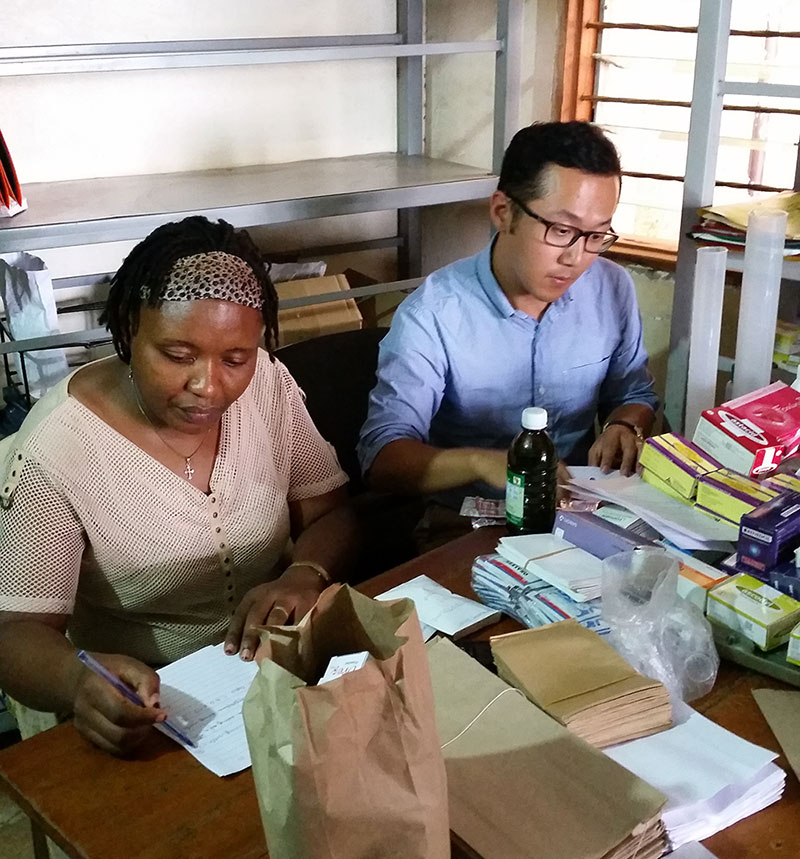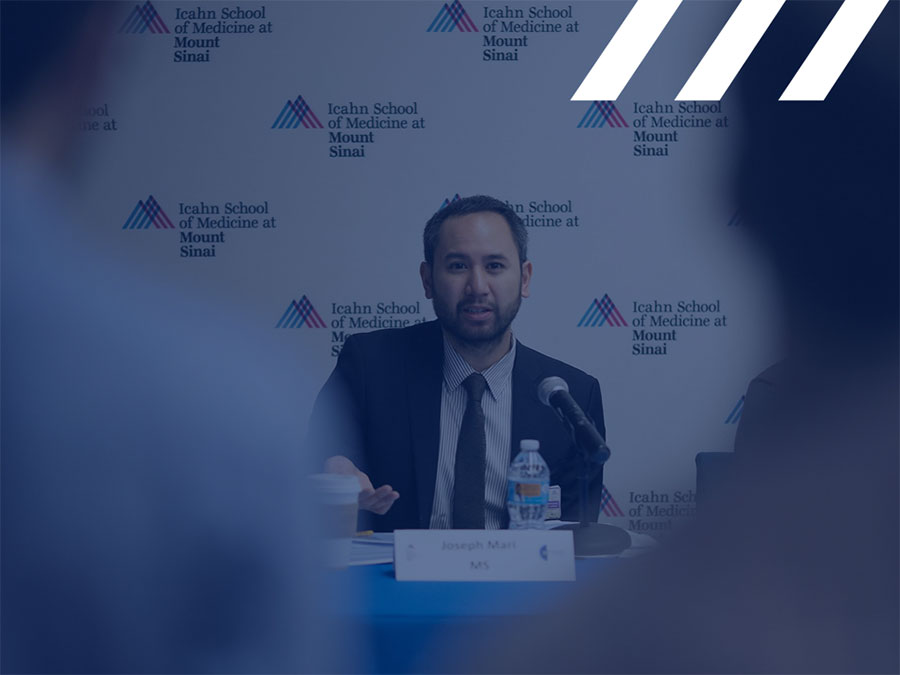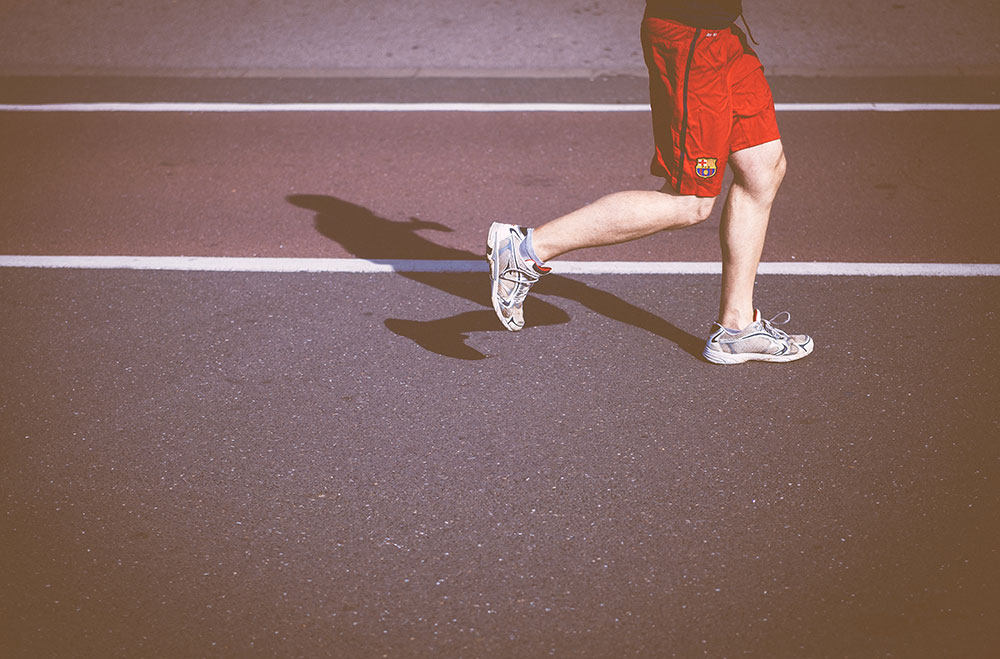Conferred to medical students in their first year of training, the white coat is a symbol of professionalism that creates a sense of responsibility to become compassionate healers for those who wear it. We invited seven of our future women in medicine to share their personal journeys and thoughts about becoming a superwoman in a white coat.
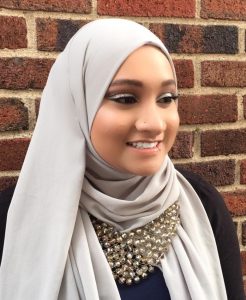
|
“To me, the white coat means privilege and to be a superwoman is to use that privilege to elevate the voices and concerns of others. In medical school, I have seen the power of the white coat in many ways, ranging from smiles and greetings from Muslim patients who see me in it to marching with other students in white coats on our Day of Action against repealing of the ACA.”
|
|
|
“To me, a superwoman doctor is no longer the woman who can play all of the roles in her life perfectly. [Instead] it’s about: understanding that it’s OK to spend a little too much time in the library or dancing in my room; learning to be patient with my learning process and to ask for help when I need it; challenging myself with experiences that will help me grow. Ultimately, I think that being a superwoman in a white coat is about being an “ordinary” woman is hardworking, humble, caring, and deeply human.”
|
|
|
“I don’t think you need a white coat to embody kindness, sincerity, empathy, honesty, and patience—values I feel should be among a person’s core characteristics. If these values are intrinsic, which they should be, you can never take them off—like a coat. To be a true superwoman, every interaction would be the same across the board, whether you’re dealing with a patient, friend, or relative.”
|
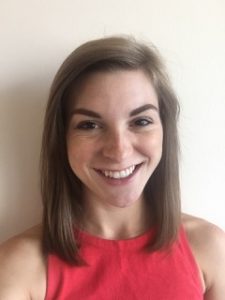 |
“I don’t think I’ve achieved “Superwoman” status yet, but if and when I do it’s because I’ve been blessed to be in environments like Mount Sinai where people are fiercely passionate about both achieving their own goals and supporting the dreams of others. Here, I’ve learned that hard work builds strong allies, that I am not alone in working towards a life of professional and personal happiness, and that there is room for wellness while pursuing my lifelong dream of being a physician. Wearing the white coat, for me, is gratifying not only because it comes after years of hard work, but also because it reminds me that I will have the privilege of a very full life – one built on family, friends, patients, and a job that I absolutely love.”
|
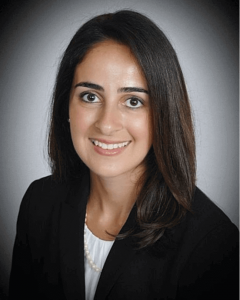
|
“I come from a long line of both doctors and strong women in my family. My grandmother, or YiaYia as we say in Greek, was accepted to medical school at a young age, but was not allowed to go. Throughout my childhood, my grandmother always stressed education and hoped that I would follow the path of medical school that she always dreamed of. I am honored to follow in the footsteps of my mother in becoming a female physician and carry out my YiaYia‘s dreams to become a doctor. The traditions tied to medicine within my family have inspired my journey to becoming a superwoman in a white coat.”
|
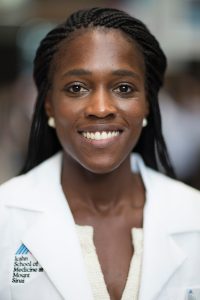 |
“I have dedicated myself to becoming an integral part of the very systems that oppress and divide, so that in better understanding them, I can open doors for those who have been shut out. To me, a white coat is an avenue for creating opportunities for others.”
|
|
“To me, being a superwoman in a white coat means continually learning about other’s experiences, what others value in life, and not making assumptions about or asserting my own worldview on others. As a future doctor, it will be critically important to have a constantly open mind and really listen to patients and colleagues, so that I can meet them where they are, rather than where I assume them to be.”
|
ABOUT THESE SUPERWOMEN
Sayeeda Chowdhury is a first-year MD/MPH student with an interest in human rights, social justice, and women’s health. She is a co-leader of AMWA, Muslim Students Association, the Human Rights and Social Justice Program, and volunteers as a Sexual Assault and Violence Intervention (SAVI) Advocate.
Slavena Salve Nissan is a first-year medical student and an aspiring physician-writer who can never have too many love poems in her life. She is the student leader of Sinai Arts, a contributor for the AAMC’s Aspiring Docs Diaries, and a medical student editor for in-Training. You can find her poetry, photography, and thoughts on social media @slavenareina on Instagram and Twitter.
Efe Chantal Ghanney is a fourth-year medical student at the Icahn School of Medicine. Efe Chantal has done extensive work with the African Research Academies for Women (ARA-W) to bridge the gender disparities in science and research—work that saw her share the stage with Former President Bill Clinton. She is currently a MasterCard Foundation Advisor for seven Clinton Global Initative University Alumni. After graduation this spring, Efe Chantal is heading to UCLA to begin her residency in Urology.
Catharine Kappauf is a first-year medical student with interests in surgery, women’s health, and oncology. She is the EHHOP NutritionCorps coordinator, a tour guide coordinator, an EHHOP interpreter, and a member of IcahnBeWell. She is passionate about performing arts, and continues to dance as much as possible.
Kalla Gervasio is a fourth-year medical student at the Icahn School of Medicine. She recently matched to Wills Eye Hospital at Thomas Jefferson University in Philadelphia, PA for her ophthalmology residency starting in July 2018. Prior to this, she will be completing a transitional year internship at Memorial Sloan Kettering Cancer Center in NYC.
Chierika Ukogu is a first-year medical student at the Icahn School of Medicine. She studied Human Biology at Stanford. Upon graduating, she conducted clinical research with the Women’s Health Research Center at the University of Pennsylvania and competed at the 2016 Olympics. She hopes to address social determinants of health, as well as conduct research, write, teach, and mentor others in the future.
Jordyn Feingold is a first-year medical student at the Icahn School of Medicine. She is passionate about integrating the science of well-being into medicine and creating cultures that enable practitioners and patients to thrive. Jordyn completed her undergraduate studies in Health and Societies as well as her Master’s of Applied Positive Psychology (MAPP) at the University of Pennsylvania. For more information about positive psychology or the REVAMP theory, reach out to her at: Jordyn.Feingold@icahn.mssm.edu.

